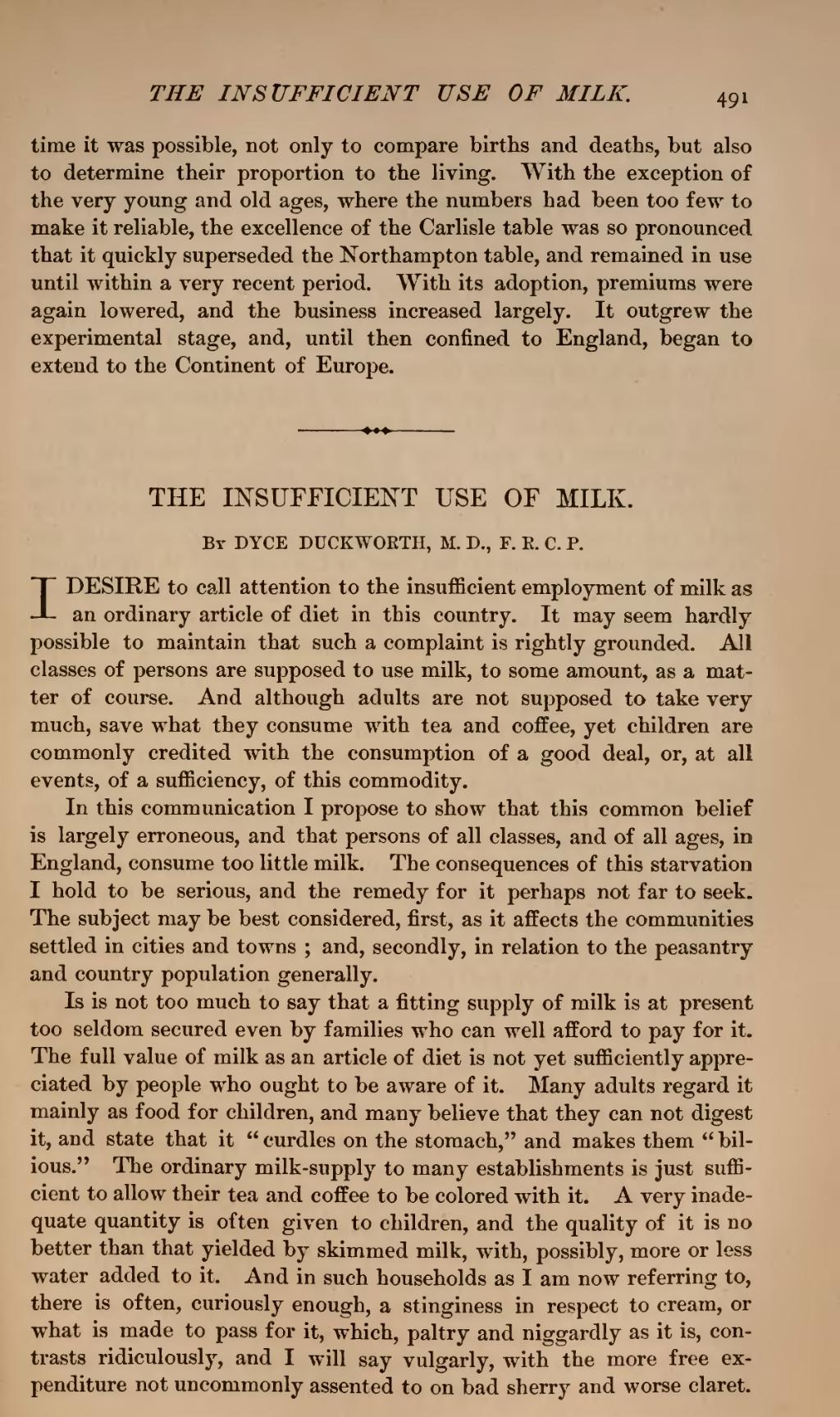time it was possible, not only to compare births and deaths, but also to determine their proportion to the living. With the exception of the very young and old ages, where the numbers had been too few to make it reliable, the excellence of the Carlisle table was so pronounced that it quickly superseded the Northampton table, and remained in use until within a very recent period. With its adoption, premiums were again lowered, and the business increased largely. It outgrew the experimental stage, and, until then confined to England, began to extend to the Continent of Europe.
| THE INSUFFICIENT USE OF MILK. |
By DYCE DUCKWORTH, M. D., F. R. C. P.
I DESIRE to call attention to the insufficient employment of milk as an ordinary article of diet in this country. It may seem hardly possible to maintain that such a complaint is rightly grounded. All classes of persons are supposed to use milk, to some amount, as a matter of course. And although adults are not supposed to take very much, save what they consume with tea and coffee, yet children are commonly credited with the consumption of a good deal, or, at all events, of a sufficiency, of this commodity.
In this communication I propose to show that this common belief is largely erroneous, and that persons of all classes, and of all ages, in England, consume too little milk. The consequences of this starvation I hold to be serious, and the remedy for it perhaps not far to seek. The subject may be best considered, first, as it affects the communities settled in cities and towns; and, secondly, in relation to the peasantry and country population generally.
Is is not too much to say that a fitting supply of milk is at present too seldom secured even by families who can well afford to pay for it. The full value of milk as an article of diet is not yet sufficiently appreciated by people who ought to be aware of it. Many adults regard it mainly as food for children, and many believe that they can not digest it, and state that it "curdles on the stomach," and makes them "bilious." The ordinary milk-supply to many establishments is just sufficient to allow their tea and coffee to be colored with it. A very inadequate quantity is often given to children, and the quality of it is no better than that yielded by skimmed milk, with, possibly, more or less water added to it. And in such households as I am now referring to, there is often, curiously enough, a stinginess in respect to cream, or what is made to pass for it, which, paltry and niggardly as it is, contrasts ridiculously, and I will say vulgarly, with the more free expenditure not uncommonly assented to on bad sherry and worse claret.

